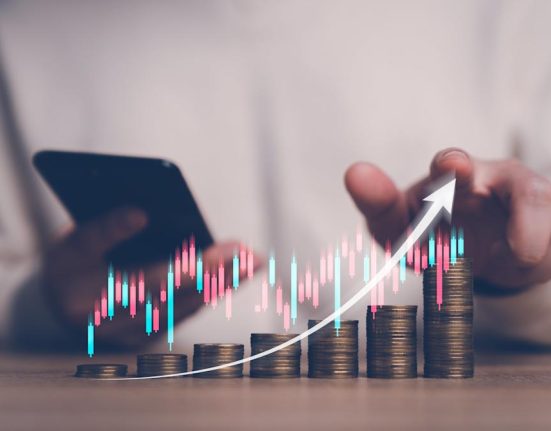00:00 Alison Morrow
So, Brent, as investors are weighing what to pay attention to, they seem to be looking past tariffs largely. So, then you’ve got earnings and you’ve got the Fed. Which should investors be more focused on right now?
00:16 Brent Schutte
All of the above. I mean, I think investors are just looking past everything that’s out there and judging that nothing is going to upset the apple cart, which I’m not for sure is going to occur. Look, um, we’ve only been with tariffs for three months, pretty much, and we don’t know yet if they’re going to filter through into higher inflation or a slower economy. I think there are risks on both sides of the equation, as well as risks on the earnings side, and that’s why I think investors need to pump the brakes just a bit and make sure that they’re following their strategic asset allocation and staying true to their financial plan.
01:07 Alison Morrow
And what do you, okay, so if they, if we’re paying attention to everything, which do you think is the potential biggest risk here?
01:18 Brent Schutte
Look, I think the economy is showing signs of weakening. If you look at the labor market, yes, it’s remained resilient, but for the past three months in the BLS labor department report, you’ve seen less than 50% of the industries actually hiring, which historically has been a warning sign. You’ve seen continuing claims tick up. On the consumer spending side, you’ve had 0.5% quarter-over-quarter growth in consumer spending in Q1, and the last two quarters have been negative 0.3 and positive 0.1. This is where I think you’re seeing signs that the economy is slowing down. I think consumers or investors are thinking it’s going to speed back up, and that’s where I think there are still risks to that equation, especially as we continue to find more and more about tariffs and what direction they’re heading, which I don’t think we have certainty yet.
02:23 Alison Morrow
And Brent, it’s interesting because we’ve had a number of strategists come on the program recently and say they view the recent tax and spending bill as stimulative, right? They look at things like some of the tax changes for capex by companies, um, and and they seem to think that maybe that could mitigate some of the weakness here. How are you thinking about that?
02:54 Brent Schutte
It certainly could. I guess the question out there is which side overwhelms which, and which isn’t priced into the market, and at the S&P 500 trading at 24 and a half times trailing 12-month earnings, and 23 times forward 12-month earnings, expected to grow 7%, appears a bit optimistic to me. But the good news is there are opportunities in other places. And I was heartened as I came on the show, you were talking about some of the older school companies that I grew up with: Kellogg, Delta, things of that nature, not just tech stocks. This is where I think there are opportunities for investors to broaden their horizons and think about small cap stocks, which trade at the second lowest valuation relative to large cap stocks in the 31 years that I’ve done this. The other time was June of 2000. I think we’re all ignoring that international stocks are up around 20% year-to-date, and I think that’s going to continue into the future because I do think the administration would like to see the dollar lower, which serves as a tailwind to US dollar-based investors’ investments in international areas. And so my big message to investors is to not just concentrate in those parts of the market that have done well the past few years. I do think there’s a broadening that’s going to occur one way or the other. And that’s why I think there are opportunities in other places that just haven’t worked as well recently.
04:42 Alison Morrow
Brent, let me ask you about small caps specifically, right? Because people have been, or certain investors certainly have been touting small caps for a while here. They haven’t worked, right? And it seems like perhaps it’s at least somewhat contingent on rates coming down. Do you think that’s still the case? Do you think rates need to come down in order for small caps to work?
05:10 Brent Schutte
I think there are two things here. One, I mentioned June of 2000. That was before a recession, so rates did come down a little bit during that time period. That’s typically what resets the cycle. It doesn’t have to be that way. The initial shock of interest rates is just that, a shock. Um, we’ve had the same level of interest rates for the past couple of years and so now companies are adapting to that. There are also positive things in that one big, beautiful bill, such as deregulation, such as lower tax rates that will actually probably serve as some sort of a stimulus to small cap stocks. And so to me, you know, I go back to valuation. I talk about that. People don’t pay attention to that today, but I think they will in the future. At least they have historically. And that’s where I think anyone with a time horizon more than the next three minutes should think about owning small cap stocks for the next three to five to seven years, because I do think you’re in for a cycle of different market leadership, and that is what historically has happened, and I think it will happen once again.



